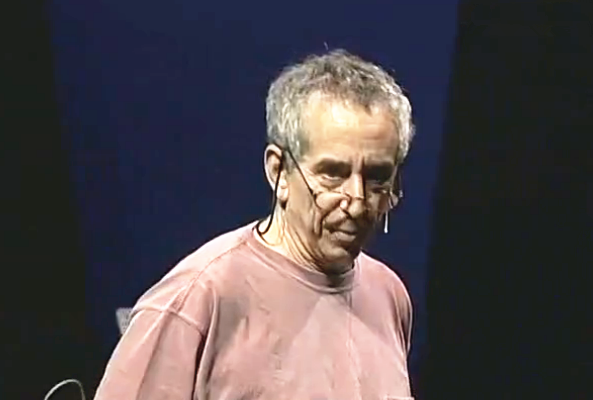So, in other aspects of life that are much more significant than buying things, the same explosion of choice is true. Health care.
同样,在生活里的其它一些比购物更对我们产生影响事情上,这种选择的爆炸同样存在。医疗保健。
It is no longer the case in the United States that you go to the doctor, and the doctor tells you what to do.
在美国,现在早已不是那种你去看医生,医生直截了当地告诉你,你该如何做的时代了。
Instead, you go to the doctor, and the doctor tells you, "Well, we could do A, or we could do B.
相反,你到了医生那里,医生会对你说:“我们可以用治疗方案甲,也可以用方案乙。
A has these benefits, and these risks.
方案甲有如此这般疗效和风险。
B has these benefits, and these risks. What do you want to do?"
方案乙有如此这般疗效和风险。你想怎么治?”
And you say, "Doc, what should I do?"
然后你说:“大夫,我该如何做?”
And the doc says, "A has these benefits and risks, and B has these benefits and risks. What do you want to do?"
医生又说一遍:“甲有这些疗效和风险,乙有那些疗效和风险。你想怎么治?”

And you say, "If you were me, Doc, what would you do?"
你再问医生:“大夫,你要是我,你选那种?”
And the doc says, "But I'm not you."
医生说:“但是我不是你。”
And the result is -- we call it "patient autonomy," which makes it sound like a good thing,
其结果就是我们所说的“病人自治。”听起来好像挺不错的,
but it really is a shifting of the burden and the responsibility for decision-making from somebody who knows something -- namely, the doctor
其实是把做决定的担子和责任,从一个知道该怎么做的人,我指的是医生,
to somebody who knows nothing and is almost certainly sick and thus not in the best shape to be making decisions -- namely, the patient.
转嫁到一个对治疗方案一无所知,而且正在为病痛所困扰,根本不在能做决定的状态的人身上,那人就是病人。
There's enormous marketing of prescription drugs to people like you and me,
现在那些处方药品的广告铺天盖地,都是针对着你我这些普通人的,
which, if you think about it, makes no sense at all, since we can't buy them.
你如果仔细想想,一点也说不通,既然我们不能直接去柜台买,
Why do they market to us if we can't buy them?
他们为什么还要向我们做市场宣传?
The answer is that they expect us to call our doctors the next morning and ask for our prescriptions to be changed.
答案是,他们希望我们看了广告后,第二天早上会去给自己的医生打电话,让医生把处方上的药换成他们的。












